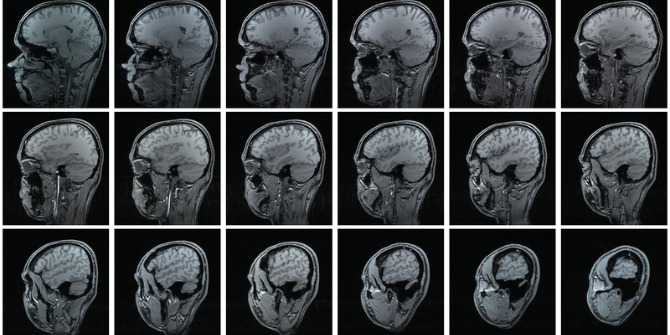Demonstrating research integrity is increasingly a demand for institutions receiving funding. However, whilst hundreds of articles have been written on the topic, precisely what this consists of is less clear. In this piece, George Gaskell presents the findings of a large Horizon 2020 study which distilled research integrity into: three areas, nine topics, and many actions. They argue that the current challenges to research integrity are real. Procedures and policies are needed, and to ensure these work as intended, institutions need a comprehensive plan that ensures that the broad goals don’t get lost. The research system must demonstrate to society that it and its contributions are trustworthy.
The European Union’s next research-funding programme, Horizon Europe, which starts next year and runs until 2027, will confirm a strong commitment to Research Integrity (RI). It is expected that institutions receiving funding from the €81-billion programme will be required to have plans and procedures in place for RI. Across the pond, in 2017, the US National Academies of Sciences, Engineering and Medicine called for resources to help researchers improve scientific integrity in their institutions.
A number of declarations outline the components of trustworthy research and the principles of RI. These include the Singapore Statement (2010), the Montreal Statement (2013), the Hong Kong Principles (2019) and the revised European Code of Conduct for RI (2017). Hundreds of articles have been written on the topic: about threats to research quality from hyper-competitiveness and inadequate training and mentoring; the unquestioning reliance on metrics in evaluation; and systematic biases in peer review and publication. There are reports of shocking cases of fraud, alarming rates of questionable research practices and of foot-dragging from practitioners, editors, authors and institutions when dealing with retractions and corrections. For all this to be avoided, research institutions must translate integrity principles into practice.
There are reports of shocking cases of fraud, alarming rates of questionable research practices and of foot-dragging from practitioners, editors, authors and institutions when dealing with retractions and corrections. For all this to be avoided, research institutions must translate integrity principles into practice.
Funded by Horizon 2020 of the EC, the study “Standard Operating Procedures for RI” (SOPs4RI), included 2 literature reviews; 23 interviews with RI experts across research institutions, funding organizations and committees; a Delphi study involving a panel of 69 RI policymakers; and 30 focus groups across Europe with participants from the natural, social and biomedical sciences, and the humanities. Converging lines of enquiry identified the following areas and topics.
| Areas | Topics | Examples |
|---|---|---|
| Support | Research environment | Responsible procedures for assessing researchers; Managing competition and publication pressure |
| Supervision and mentoring | Guidelines for PhD supervision; Setting up mentoring schemes | |
| RI training | RI training for junior and senior researchers; RI counselling | |
| Organise | Research ethics structures | Setting up ethics committees; Ethics review procedures |
| Dealing with breaches of RI | Protection of whistle-blowers and researchers accused of misconduct; Procedures for investigating allegations | |
| Data practices and management | Guidance, training and infrastructure for data management; Implementing the FAIR principles | |
| Communicate | Research collaboration | Guidance for collaboration with institutions in countries with different R&D systems; University-Industry collaboration |
| Declaration of interests | Declaration of interests in research conduct, peer review, research evaluation, appointments, promotions and consultancy | |
| Publication and communication | Guidelines for authorship; Procedures for open science and communication with the public |
Translating principles into practice is a challenge. Organisational stakeholders need to work through the topics that should be addressed and then tailor measures as appropriate for the differing disciplines. Those conducting clinical trials, environmental-impact assessments and behavioural economic surveys all need to preserve integrity when they collect and manage data, but how they do so will differ substantially. And similar institutions in different countries will need to adhere to national legislation. To ensure that new procedures and policies work as intended, institutions need a comprehensive plan that ensures that the broad goals don’t get lost. It should specify how policies will be implemented, maintained and evaluated. It should identify what risks there are to implementation, and how to mitigate them.
SOPs4RI identified many innovative examples of good practice around Europe and beyond.
It is difficult to assess how much these projects contributed to RI, let alone compare them in terms of time and effort. That we were able to identify dozens of these projects suggests that people can be convinced that such internally driven efforts are worthwhile. Many, it appears had local champions.
We… think that current challenges to RI are real, that the primary objective is quality, and that the research system must demonstrate to society that the system and its contributions are trustworthy.
Critics will counter that requiring policies and procedures to promote RI amounts to using a sledge hammer to crack a nut, or that miscreants are highly visible but rare, or that it happens in other fields. And they will say that, in practice, it will just add another couple of pages of box-ticking to research-grant applications. These are legitimate concerns, and SOPs4RI will investigate the perceived costs and benefits of local reforms. We, and many of our informants think that current challenges to RI are real, that the primary objective is quality, and that the research system must demonstrate to society that the system and its contributions are trustworthy.
SOPs4RI has documented a range of policies for RI together with procedures and other resources. These are tagged according to the type of organization, discipline and purpose, and are accessible through the SOPs4RIToolbox . Over the next two years, we will refine and curate these, using pilot studies of institutions that implement plans, a cost/benefit analysis and an international survey. Cultivating RI is a collective endeavour and the project team welcomes members of the research community to share with them views, concerns, and examples of best practices.
This blog was adapted from Research integrity: nine ways to move from talk to walk, first published in Nature.
Authors: Niels Mejlgaard, Lex M. Bouter, George Gaskell, Panagiotis Kavouras, Nick Allum, Anna-Kathrine Bendtsen, Costas A. Charitidis, Nik Claesen, Kris Dierickx, Anna Domaradzka, Andrea Reyes Elizondo, Nicole Foeger, Maura Hiney, Wolfgang Kaltenbrunner, Krishma Labib, Ana Marušić, Mads P. Sorensen, Tine Ravn, Rea Ščepanović, Joeri K. Tijdink & Giuseppe A. Veltri.
Note: This review gives the views of the author, and not the position of the LSE Review of Books blog, or of the London School of Economics.








2 Comments